
The 34th Chess Olympiad (Turkish: 34. Satranç Olimpiyatı), organized by the Fédération Internationale des Échecs and comprising an open[1] and women's tournament, took place between October 28 and November 12, 2000, in Istanbul, Turkey. There were 126 teams in the open event and 86 in the women's event.
Both tournament sections were officiated by international arbiter Geurt Gijssen (Netherlands). Teams were paired across the 14 rounds of competition according to the Swiss system. The open division was played over four boards per round, whilst the women's was played over three. In the event of a draw, the tie-break was decided first by the Buchholz system and secondly by match points.
The time control for each game permitted each player 100 minutes to make the first 40 of their moves, then an additional 50 minutes to make the next 20 moves, and then 10 minutes to finish the game, with an additional 30 seconds devolving on each player after each move, beginning with the first.
In addition to the overall medal winners, the teams were divided into seeding groups, with the top finishers in each group receiving special prizes.
Open event
The open division was contested by 126 teams representing 124 nations. Turkey, as hosts, fielded two teams, whilst the International Braille Chess Association provided one squad. Nicaragua, Mauritania, and Djibouti were signed up but never arrived.
Once again, Russia had to do without their strongest players, the "Three Ks". Classical World Champion Garry Kasparov and challenger Vladimir Kramnik were in the midst of their championship match, and ex-champion Anatoly Karpov was still at odds with the national federation. Captained by the new FIDE champion Khalifman, however, Russia were still favourites, and the team did win their fifth consecutive title, although only by a single point. Germany took the silver medals, while Ukraine clinched the bronze, beating Hungary on tie-break. Pre-tournament medal favourites England, whose average rating was a mere 13 points below Russia's, finished a disappointing seventh.
Open event # Country Players Average
ratingPoints Buchholz 1  Russia
RussiaKhalifman, Morozevich, Svidler, Rublevsky, Sakaev, Grischuk 2685 38 2  Germany
GermanyYusupov, Hübner, Dautov, Lutz, Bischoff, Luther 2604 37 3  Ukraine
UkraineIvanchuk, Ponomariov, Baklan, Eingorn, Romanishin, Malakhatko 2638 35½ 457.5 4  Hungary
HungaryLeko, Almási, Polgár, Portisch, Sax, Ruck 2661 35½ 455.5 5  Israel
IsraelGelfand, Smirin, Avrukh, Psakhis, Sutovsky, Huzman 2652 34½ 6 .svg.png.webp) Georgia
GeorgiaAzmaiparashvili, Giorgadze, Sturua, Kacheishvili, Gelashvili, Jobava 2602 34 7  England
EnglandAdams, Short, Hodgson, Speelman, Miles, Emms 2672 33 441.5 8 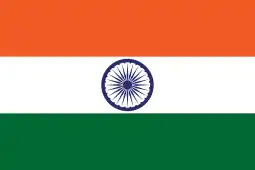 India
IndiaKrishnan Sasikiran, Abhijit Kunte, Pentala Harikrishna, Dibyendu Barua, Devaki Prasad, Surya Ganguly 2538 33 440.5 9  China
ChinaYe Jiangchuan, Xu Jun, Peng Xiaomin, Wu Wenjin, Liang Chong, Ni Hua 2651 33 439.5 10 .svg.png.webp) Switzerland
SwitzerlandKorchnoi, Milov, Gallagher, Pelletier, Jenni, Hug 2562 33 432.5 # Country Average
ratingPoints Buchholz MP 11  Uzbekistan
Uzbekistan2564 33 429.5 12  Slovenia
Slovenia2550 33 421.0 13  North Macedonia
North Macedonia2483 33 417.0 14  Bulgaria
Bulgaria2628 32½ 459.0 15  Poland
Poland2590 32½ 437.5 16  France
France2544 32½ 427.0 17 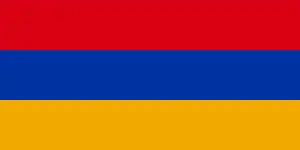 Armenia
Armenia2606 32 456.5 18 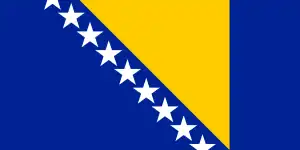 Bosnia and Herzegovina
Bosnia and Herzegovina2582 32 441.5 19  Philippines
Philippines2510 32 439.0 19 20  Greece
Greece2541 32 439.0 16 21  Denmark
Denmark2580 32 436.0 22 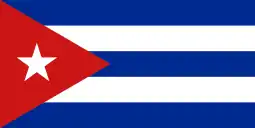 Cuba
Cuba2546 32 432.5 23  Spain
Spain2582 32 432.0 24 .svg.png.webp) Yugoslavia
Yugoslavia2542 32 427.5 25  Estonia
Estonia2530 32 421.0 26  United States
United States2627 31½ 449.0 27  Romania
Romania2524 31½ 445.0 28  Slovakia
Slovakia2552 31½ 442.5 29 .svg.png.webp) Canada
Canada2482 31½ 430.0 30  Scotland
Scotland2455 31½ 418.5 31 .svg.png.webp) Lithuania
Lithuania2490 31½ 414.0 32 .svg.png.webp) Belarus
Belarus2577 31½ 398.5 33  Netherlands
Netherlands2615 31 459.5 34  Latvia
Latvia2493 31 429.0 35 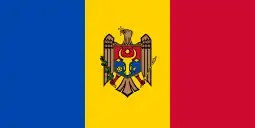 Moldova
Moldova2489 31 422.5 36 .svg.png.webp) Australia
Australia2483 31 410.0 37 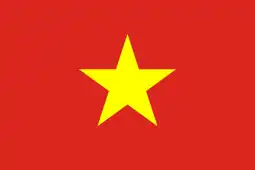 Vietnam
Vietnam2505 31 406.0 38  Brazil
Brazil2573 30½ 440.0 39  Czech Republic
Czech Republic2607 30½ 432.5 40 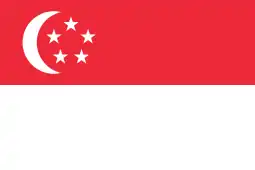 Singapore
Singapore2467 30½ 403.0 41 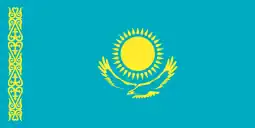 Kazakhstan
Kazakhstan2564 30 434.5 42  Sweden
Sweden2548 30 432.5 43  Croatia
Croatia2579 30 427.5 44 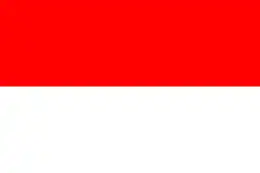 Indonesia
Indonesia2503 30 416.5 45  Finland
Finland2451 30 411.5 46  Azerbaijan
Azerbaijan2456 30 410.5 47  Portugal
Portugal2354 30 410.0 48 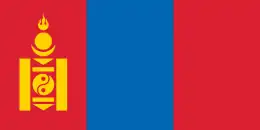 Mongolia
Mongolia2415 30 407.5 49 .svg.png.webp) Kyrgyzstan
Kyrgyzstan2489 29½ 426.5 50 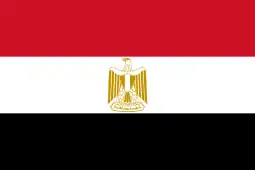 Egypt
Egypt2426 29½ 405.5 51  Ireland
Ireland2426 29½ 397.5 52  Norway
Norway2374 29½ 396.5 53  Argentina
Argentina2503 29½ 386.5 54 .svg.png.webp) Belgium
Belgium2394 29½ 377.5 55  Iceland
Iceland2469 29 430.0 56  Italy
Italy2476 29 425.0 57  Chile
Chile2411 29 404.0 58  Bangladesh
Bangladesh2407 29 373.5 59 .svg.png.webp) Turkmenistan
Turkmenistan2449 28½ 410.5 60  Austria
Austria2404 28½ 395.5 14 61  Iran
Iran2408 28½ 395.5 13 62  Turkey
Turkey2337 28½ 393.5 63 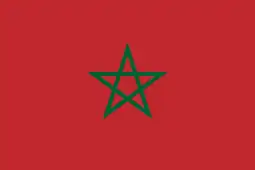 Morocco
Morocco2386 28½ 393.0 64  Malaysia
Malaysia2307 28½ 387.0 65  Peru
Peru2376 28½ 366.5 66  Turkey "B"
Turkey "B"2265 28 393.0 67 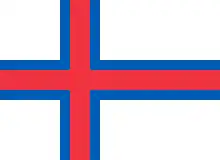 Faroe Islands
Faroe Islands2321 28 385.5 68  Ecuador
Ecuador2386 28 379.5 69 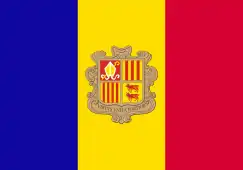 Andorra
Andorra2353 28 379.0 70  South Africa
South Africa2221 28 373.5 71 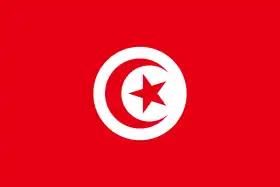 Tunisia
Tunisia2219 28 372.5 72 .svg.png.webp) Venezuela
Venezuela2368 27½ 407.5 73 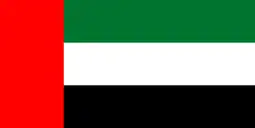 United Arab Emirates
United Arab Emirates2376 27½ 389.5 74  Luxembourg
Luxembourg2279 27½ 377.5 75 .svg.png.webp) Paraguay
Paraguay2320 27½ 374.5 76 .svg.png.webp) Myanmar
Myanmar2528 27 397.5 77  Mexico
Mexico2411 27 397.0 78 IBCA 2325 27 391.0 79  Pakistan
Pakistan2301 27 381.5 12 80  Wales
Wales2276 27 381.5 9 81 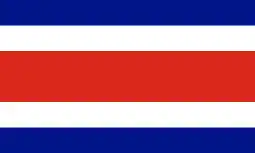 Costa Rica
Costa Rica2313 27 379.0 82  Qatar
Qatar2228 27 374.0 83  Colombia
Colombia2343 26½ 393.0 84 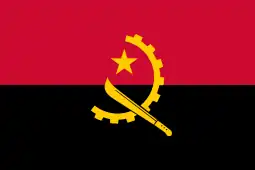 Angola
Angola2060 26½ 375.5 85 .svg.png.webp) Iraq
Iraq2365 26 396.5 86  Syria
Syria2321 26 388.5 87  New Zealand
New Zealand2352 26 386.0 88  Japan
Japan2215 26 379.0 89  Puerto Rico
Puerto Rico2202 26 367.5 90  Zambia
Zambia2232 25½ 387.0 91  Uruguay
Uruguay2250 25½ 378.5 92  El Salvador
El Salvador2185 25½ 370.5 93  Zimbabwe
Zimbabwe2210 25½ 360.5 94 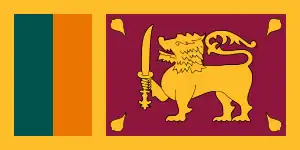 Sri Lanka
Sri Lanka2081 25½ 356.5 95  Uganda
Uganda2218 25½ 351.5 96  Albania
Albania2364 25 388.5 97 .svg.png.webp) Cyprus
Cyprus2253 25 374.5 98 .svg.png.webp) Bolivia
Bolivia2257 25 370.0 99  Yemen
Yemen2299 25 369.0 100 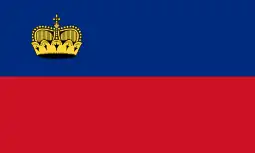 Liechtenstein
Liechtenstein2121 25 336.5 101  Barbados
Barbados2057 25 331.5 102  Jamaica
Jamaica2234 24½ 367.0 103  Kenya
Kenya2126 24½ 353.5 104  Suriname
Suriname2051 24½ 342.0 105  Honduras
Honduras2123 24 363.0 106 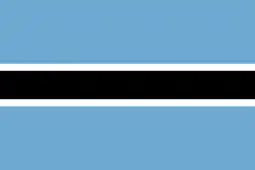 Botswana
Botswana2093 24 349.0 107 .svg.png.webp) Netherlands Antilles
Netherlands Antilles2159 24 346.0 108  Palestine
Palestine2087 24 333.0 109 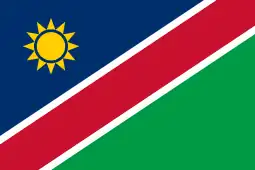 Namibia
Namibia2152 24 305.5 110 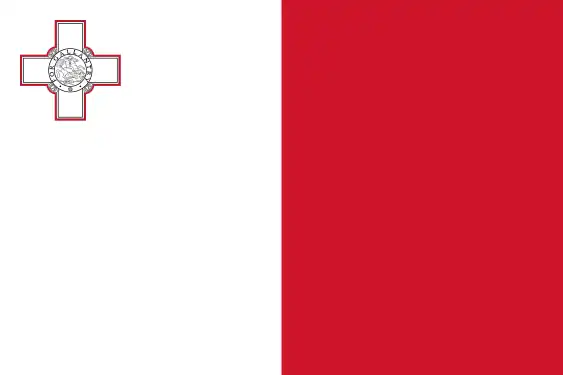 Malta
Malta2212 23½ 354.5 111  Monaco
Monaco2210 23½ 342.5 112  Macau
Macau2190 23½ 330.0 113 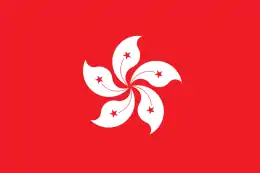 Hong Kong
Hong Kong2108 23½ 326.5 114 .svg.png.webp) Ethiopia
Ethiopia2079 23½ 319.5 13 115  Mauritius
Mauritius2000 23½ 319.5 11 116  Panama
Panama2058 23½ 310.5 117  Jersey
Jersey2145 23½ 301.5 118  Trinidad and Tobago
Trinidad and Tobago2214 23 119 .svg.png.webp) San Marino
San Marino2051 22½ 120  Bermuda
Bermuda2006 20½ 121  Brunei
Brunei2000 20 298.5 122  Seychelles
Seychelles2056 20 297.5 123  Papua New Guinea
Papua New Guinea2051 19½ 124  Guernsey
Guernsey2092 18½ 125  United States Virgin Islands
United States Virgin Islands2020 13½ 126 .svg.png.webp) Rwanda
Rwanda2000 7½
Individual medals
- Performance rating:
 Alexander Morozevich 2804
Alexander Morozevich 2804 - Board 1:
 Utut Adianto 7½ / 9 = 83.3%
Utut Adianto 7½ / 9 = 83.3% - Board 2:
 Ruslan Ponomariov 8½ / 11 = 77.3%
Ruslan Ponomariov 8½ / 11 = 77.3% - Board 3:
 Dragoljub Jacimović 7 / 9 = 77.8%
Dragoljub Jacimović 7 / 9 = 77.8% - Board 4:
 Ashot Anastasian 9 / 12 = 75.0%
Ashot Anastasian 9 / 12 = 75.0% - 1st reserve:
 Taleb Moussa 6 / 7 = 85.7%
Taleb Moussa 6 / 7 = 85.7% - 2nd reserve:
 Alexei Barsov 5½ / 7 = 78.6%
Alexei Barsov 5½ / 7 = 78.6%
Women's event
The women's division was contested by 86 teams representing 84 nations. Turkey, as hosts, fielded two teams, whilst the International Braille Chess Association entered one squad.
Defending champions China were huge favourites on rating and retained their title, led by reigning world champion Xie Jun and with two future champions in the team: Zhu Chen and Xu Yuhua. Georgia and Russia took the silver and bronze medals, respectively.
# Country Players Average
ratingPoints Buchholz 1  China
ChinaXie Jun, Zhu Chen, Xu Yuhua, Wang Lei 2537 32 2 .svg.png.webp) Georgia
GeorgiaChiburdanidze, Ioseliani, Khurtsidze, Gurieli 2480 31 3  Russia
RussiaGalliamova, Kovalevskaya, Matveeva, Stepovaya-Dianchenko 2480 28½ 4  Ukraine
UkraineZhukova, Zatonskih, Vasilevich, Sedina 2442 27 5 .svg.png.webp) Yugoslavia
YugoslaviaMarić, Bojković, Prudnikova, Chelushkina 2430 26 6  Netherlands
NetherlandsZhaoqin Peng, Sziva, Bosboom-Lanchava, Jap Tjoen San 2329 25½ 7  Hungary
HungaryMádl, Lakos, Grábics, Gara 2369 25 342.0 8  Germany
GermanyKachiani-Gersinska, Paehtz, Koglin, Trabert 2364 25 333.5 9  England
EnglandHunt, Lalic, Houska, Richards 2349 25 325.5 10  Armenia
ArmeniaDanielian, Mkrtchian, Hlgatian, Aginian 2303 24½ 342.5 # Country Average
ratingPoints Buchholz MP 11  Romania
Romania2350 24½ 333.0 12  Moldova
Moldova2385 24 328.5 13  India
India2272 24 328.0 14  Poland
Poland2386 24 323.5 15  United States
United States2261 24 316.0 16  Bulgaria
Bulgaria2328 23½ 324.5 17  Cuba
Cuba2302 23½ 317.0 18  Latvia
Latvia2249 23½ 303.0 19  Kazakhstan
Kazakhstan2299 23 325.0 20  Israel
Israel2325 23 300.5 21  Azerbaijan
Azerbaijan2251 22½ 334.5 22  Czech Republic
Czech Republic2271 22½ 334.0 23  Vietnam
Vietnam2367 22½ 329.0 24 .svg.png.webp) Belarus
Belarus2325 22½ 326.5 25  Spain
Spain2251 22½ 320.0 26  Greece
Greece2295 22½ 312.5 27 .svg.png.webp) Australia
Australia2188 22½ 306.0 28  Slovakia
Slovakia2305 22½ 305.0 29  Estonia
Estonia2239 22½ 302.5 30 .svg.png.webp) Lithuania
Lithuania2237 22 321.0 31  Uzbekistan
Uzbekistan2171 22 307.0 32  Croatia
Croatia2254 22 304.5 33  Mongolia
Mongolia2162 22 301.5 34  Finland
Finland2148 22 300.0 35  Portugal
Portugal2065 22 296.0 36  Bosnia and Herzegovina
Bosnia and Herzegovina2237 21½ 313.5 37  Bangladesh
Bangladesh2050 21½ 305.0 38  Sweden
Sweden2188 21½ 303.0 39  France
France2269 21½ 296.5 40  Philippines
Philippines2070 21½ 294.5 41  Austria
Austria2170 21 309.5 42  Denmark
Denmark2108 21 305.5 43 .svg.png.webp) Turkmenistan
Turkmenistan2233 21 304.0 44 .svg.png.webp) Switzerland
Switzerland2162 21 300.0 45  Slovenia
Slovenia2207 21 297.0 14 46  Ecuador
Ecuador2309 21 297.0 12 47  North Macedonia
North Macedonia2122 21 295.0 48  Italy
Italy2039 21 281.0 49 .svg.png.webp) Venezuela
Venezuela2101 20½ 301.5 50 .svg.png.webp) Kyrgyzstan
Kyrgyzstan2123 20½ 295.5 51  Argentina
Argentina2146 20½ 287.5 52 IBCA 2122 20½ 285.5 53  Iran
Iran2008 20½ 285.0 54  Wales
Wales2053 20½ 280.5 55  Indonesia
Indonesia2080 20½ 272.0 56  Norway
Norway2062 20 297.5 57  Brazil
Brazil2151 20 294.0 58  Scotland
Scotland2084 20 291.0 59 .svg.png.webp) Canada
Canada2070 20 274.0 60  Malaysia
Malaysia2061 20 268.0 61  Ireland
Ireland2035 20 239.0 62  Mexico
Mexico2069 19½ 296.0 63  Turkey
Turkey2032 19½ 286.5 64  United Arab Emirates
United Arab Emirates2000 19½ 274.5 65  Costa Rica
Costa Rica2000 19½ 262.5 66  Japan
Japan2000 19½ 259.0 67  Turkey "B"
Turkey "B"2000 19½ 256.5 68  Colombia
Colombia2159 19 279.5 69  Albania
Albania2077 19 266.0 70  Guatemala
Guatemala2070 19 257.0 71  South Africa
South Africa2050 18½ 270.0 72 .svg.png.webp) Iraq
Iraq2061 18½ 268.5 73  El Salvador
El Salvador2015 18½ 262.0 74  New Zealand
New Zealand2000 18½ 243.5 75  Morocco
Morocco2000 18½ 242.0 76  Puerto Rico
Puerto Rico2000 18½ 233.5 77  Syria
Syria2000 18 257.0 78  Iceland
Iceland2042 18 246.5 79  Singapore
Singapore2000 18 238.5 80  Sri Lanka
Sri Lanka2000 18 232.5 81  Botswana
Botswana2000 18 224.5 82  Angola
Angola2000 14½ 225.0 83  Zambia
Zambia2000 14½ 224.5 84  Macau
Macau2000 10½ 85  Yemen
Yemen2000 7½ 86  United States Virgin Islands
United States Virgin Islands2021 2½
Individual medals
- Performance rating:
 Zhu Chen 2641
Zhu Chen 2641 - Board 1:
 Viktorija Čmilytė 9½ / 12 = 79.2%
Viktorija Čmilytė 9½ / 12 = 79.2% - Board 2:
 Zhu Chen 9 / 11 = 81.8%
Zhu Chen 9 / 11 = 81.8% - Board 3:
.svg.png.webp) Nino Khurtsidze 11 / 13 = 84.6%
Nino Khurtsidze 11 / 13 = 84.6% - Reserve:
 Zahira El-Ghabi 6½ / 7 = 92.9%
Zahira El-Ghabi 6½ / 7 = 92.9%
Overall title
The Nona Gaprindashvili Trophy is awarded to the nation that has the best average rank in the open and women's divisions. Where two or more teams are tied, they are ordered by best single finish in either division and then by total number of points scored.
The trophy, named after the former women's world champion (1961–78), was created by FIDE in 1997.
| # | Team | Open division |
Women's division |
Average |
|---|---|---|---|---|
| 1 | 1 | 3 | 2 | |
| 2 | 3 | 4 | 3½ | |
| 3 | 6 | 2 | 4 |
Notes
- ↑ Although commonly referred to as the men's division, this section is open to all players.
- 34th Chess Olympiad: Istanbul 2000 OlimpBase